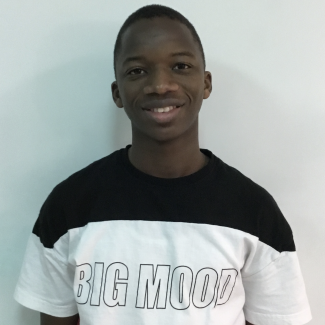
Many times I was told to “ keep quiet” or “learn how to speak properly because you can’t talk”. Several people made fun of my stutter, laughing at me and calling me so many kinds of awful names like “Porky Pig” and “don’t know how to speak” and many more. This created social anxiety and turned me into a quiet person due to the fact that I experienced fear when joining any conversations because people would then know I am a person who stutters.
When I moved to the United States of America, at the age of fourteen, I felt like a failure. No one wanted to be friends with me. I felt like no one liked me or even said a single word to me just because I’m a person who stutters. Sometimes I didn’t even like going to school or hanging out with other people just because I am a person who stutters. I got bullied a lot at school and was not able to stand up for myself because I couldn’t say a single word leaving me standing like a flop, an underdog, an outcast. All these jokes made me wonder, what did I do to deserve to be a person who stuttered? To this day, I still don’t have the answer.
When I started high school, I had the opportunity to work with a speech therapist on my stutter at Hockinson High School. My speech therapist was a nice and caring person, and always told me, “remember who you are, stuttering doesn’t define who you are and don’t ever let it stop you from achieving your goals.” I have always wanted this opportunity to work with someone who knows a lot about stuttering. I work with my speech therapist every week to work on strategies and techniques; most importantly though, we worked on self-disclosure and self-acceptance. When I started meeting with my speech therapist I began to talk very slowly. At first it felt weird but as time went on I began to get used to it and slowing my speech down really helped my stutter a lot. Going to a speech therapist has helped me throughout my high school career. All my nightmares and challenges with my stuttering have turned into aspirations of becoming a person who is not afraid to share their stories with others and one who accepts their stuttering.
Although I never got the answer to what I did to deserve to be a person who stuttered, I do know the answer to one thing. No matter who you are, whether you are a person who stutters or has a disability, there will always be a person who will accept you just the way you are. I finally found good friends, friends who accepted me no matter how much I stuttered.
This piece was written by Muhammed, a teen who stutters, and generously submitted in collaboration with his speech-language pathologist, Christy.
